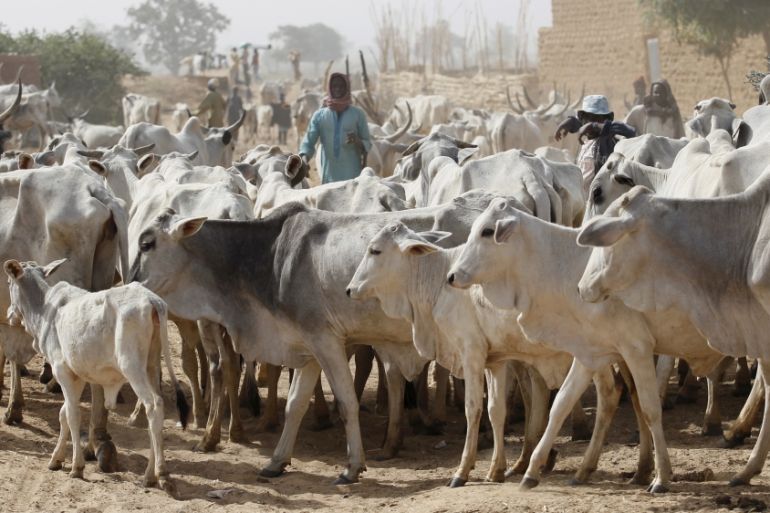Amnesty: Farmer-herder clashes kill 3,600 in Nigeria
Rights group says thousands of people have been killed since 2016 in clashes between farmers and semi-nomadic herders.

Clashes in Nigeria between farmers and semi-nomadic herders have killed more than 3,600 people since 2016, according to Amnesty International.
In a report released on Monday, the human rights group said that more than 2,000 people had been killed in 2018 alone, while thousands more had been made homeless.
Keep reading
list of 4 itemsMSF suspends work in Haiti emergency centre after armed group kills patient
‘It gave me a purpose’: Surf therapy transforms lives in South Africa
British-Ghanaian boxer Joshua Buatsi: ‘I can’t be the only one benefitting’
Violence between the groups is on the increase in Nigeria over access to fertile land and water, which is becoming scarce in the face of drought and rapid population growth.
The upsurge in violence could affect national elections scheduled for February 2019, when Muhammadu Buhari will seek a second term as president.
His campaign has been damaged by accusations he has soft-pedalled justice for one of the sides responsible for the clashes, the herders, many of whom come from the same Fulani ethnic group as the leader.
The presidency has repeatedly denied those allegations.
The violence is often painted as ethnoreligious: chiefly Muslim Fulani herders clashing with mainly Christian farmers.
But many analysts and politicians say climate change and expanding agriculture are creating competition for land that is pushing the farmers and herders into conflict, regardless of faith or ethnicity.
After a quieter wet season in the summer, analysts now fear clashes could surge again as the dry season begins, forcing herders to move south towards greener land and water supplies, often across farmland. Any increase in violence would coincide with the February 2019 vote.
“The Nigerian authorities’ failure to investigate communal clashes and bring perpetrators to justice has fuelled a bloody escalation in the conflict between farmers and herders across the country, resulting in at least 3,641 deaths in the past three years and the displacement of thousands more,” Amnesty said in a statement.
Nigeria’s military and police did not respond to request for comment.
Of the 310 attacks recorded between January 2016 and October 2018, 57 percent were in 2018, the rights group said.
“These attacks were well planned and coordinated, with the use of weapons like machine guns and AK-47 rifles,” Osai Ojigho, Amnesty’s Nigeria director, said.
“Yet, little has been done by the authorities in terms of prevention, arrests and prosecutions, even when information about the suspected perpetrators was available,” she said.
The farmer-herder conflict killed six times more people than the war with the Boko Haram rebellion in the first half of 2018, the International Crisis Group said in July.
“In some places, because of the failures of the security forces, competition over resources is used as a pretext to kill and maim along ethnic or religious lines,” Ojigho said.
“The conflict has also been dangerously politicised by some state government officials who have inflamed tensions by embarking on a blame game along political party lines,” she added.